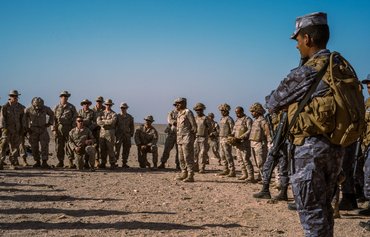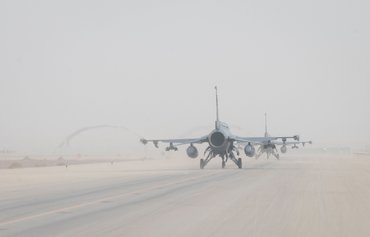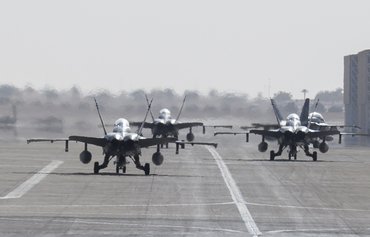SAUDI ARABIA -- In the face of ongoing threats to regional security from the Iranian regime and its proxies, the US and Saudi militaries continue to conduct joint exercises that aim to cement their partnership while preparing for a wide range of possible conflicts.
The Native Fury 22 exercises, which began August 9 and runs for almost a month, "is vital for strengthening the United States' long-standing relationship with the Saudi Armed Forces. The exercise enhances combined tactics, maritime capabilities and promotes long-term regional stability", US Central Command (CENTCOM) tweeted on August 12.
The exercise involves more than 1,000 soldiers, hundreds of vehicles, naval vessels, tactic operational centres, cyber capabilities and much more at the Saudi ports of Yanbu and al-Bayadh and the Prince Sultan Air Base.
This is the eighth iteration of Native Fury, and this year's exercise focused on the demonstration of the rapid offload and integration of a Maritime Pre-Positioned Force, which is poised to respond to regional crises and contingency operations.
![US Marines, as part of the Native Fury exercises on August 12, conducted medical training for Saudi personnel. [CENTCOM]](/cnmi_am/images/2022/08/19/36708-fz3cdsmxwaehjtu-600_384.jpg)
US Marines, as part of the Native Fury exercises on August 12, conducted medical training for Saudi personnel. [CENTCOM]
"The exercise aims at training on bilateral military and operational plans as well as exchanging expertise between the two sides," Saudi Gen. Saud Al-Okaili was quoted as saying, according to Saudi Press Agency.
Native Fury 22 was opened by Saudi Air Force Maj. Gen. Ahmed Aldebais and US Marine Corps Maj. Gen. Paul J. Rock and a number of senior officials from both sides.
Rock hailed the importance of the exercise and US alliance with Saudi Arabia.
"Nothing happens in this region without the Saudis being involved," he said during an interview on August 9. "They are a key leader in the region."
"The exercise means a lot as it affirms the importance of Saudi-American joint military co-operation safeguarding common interests and regional security," Ali Al-Balawi, a strategic analyst, told Arab News.
Security and stability received priority over many other matters, he said, "especially because American military and intelligence officials realise that without the Saudi positive role there will be no security or stability in the Middle East and no protection to the US interests".
Persistent threats
The Native Fury exercise comes amid persistent threats to regional security from the Iranian regime and its proxies.
On Monday (August 15), Mahdi al-Mashat, a top leader in the Iran-backed Houthi movement, threatened Saudi Arabia and the United Arab Emirates (UAE) with further drone and missile attacks.
"Painful" attacks are coming, said al-Mashat, according to Al-Mayadeen news outlet.
Iran's proxies have a long history of engaging in drone attacks across the region.
The Houthis carried out a missile and drone attack on the heart of Saudi Arabia's oil industry on March 7.
Sixteen civilians were injured in Saudi Arabia on February 21 when the kingdom destroyed a Houthi drone launched toward King Abdullah Airport in Jazan.
Twelve civilians were injured by falling debris after the Saudi military blew up a Houthi drone targeting Abha International Airport on February 10.
In January, the Houthis directed three drone and missile attacks at the UAE, killing three civilians.
Emirati forces intercepted and destroyed additional "hostile drones" targeting the UAE on February 2, in an attack claimed by a shadowy Iraqi militia linked to Iran calling itself Alwiyat al-Waad al-Haq.
The group is a suspected front for Kataib Hizbullah.
And Hizbullah chief Hassan Nasrallah on February 16 boasted that his Iran-backed party is now capable of using drones to turn its missiles into precision-guided weapons.
Iran's proxies in Iraq have carried out a number of drone attacks, including on the home of Prime Minister Mustafa Kadhemi in November.

![Members of the Saudi armed forces conduct a briefing with US Marines on August 10. [CENTCOM]](/cnmi_am/images/2022/08/19/36713-7368925-600_384.jpg)






